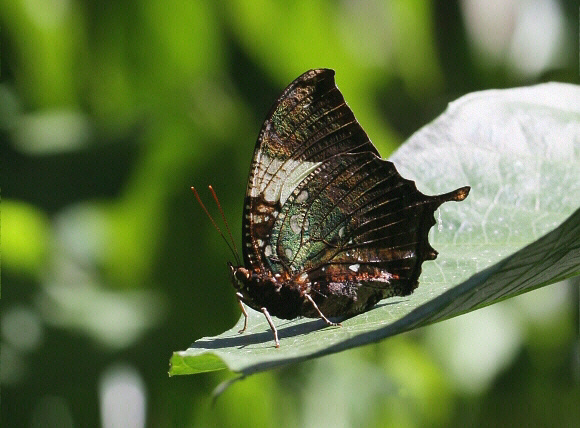 Hypna clytemnestra, Tingo Maria, Peru – Adrian Hoskins
Hypna clytemnestra, Tingo Maria, Peru – Adrian Hoskins
Introduction
The genus Hypna contains just one species, clytemnestra.
The upperside is black, with broad creamy white bands across the forewings. Like most members of the Charaxinae, it has a cryptic underside pattern, resembling a dead withered leaf.
Hypna clytemnestra occurs from Mexico to Argentina.
Habitats
This species is found in the Amazonian lowlands and Andean foothills, at altitudes between about 100-800m.
Lifecycle
The eggs are globular, and laid singly on the foliage of Croton ( Euphorbiaceae ).The fully grown caterpillar is pale brown, with a prominent thoracic hump, and has reddish tubercules along the back, from which long black setae arise.
Adult behaviour
The butterfly is uncommon, and always encountered singly. It appears to spend most of it’s life high in the trees, and can usually only be observed from a distance through binoculars. Occasionally a butterfly will descend however, attracted by rotting fruit or sap runs, and at such times it often first settles on nearby foliage.
